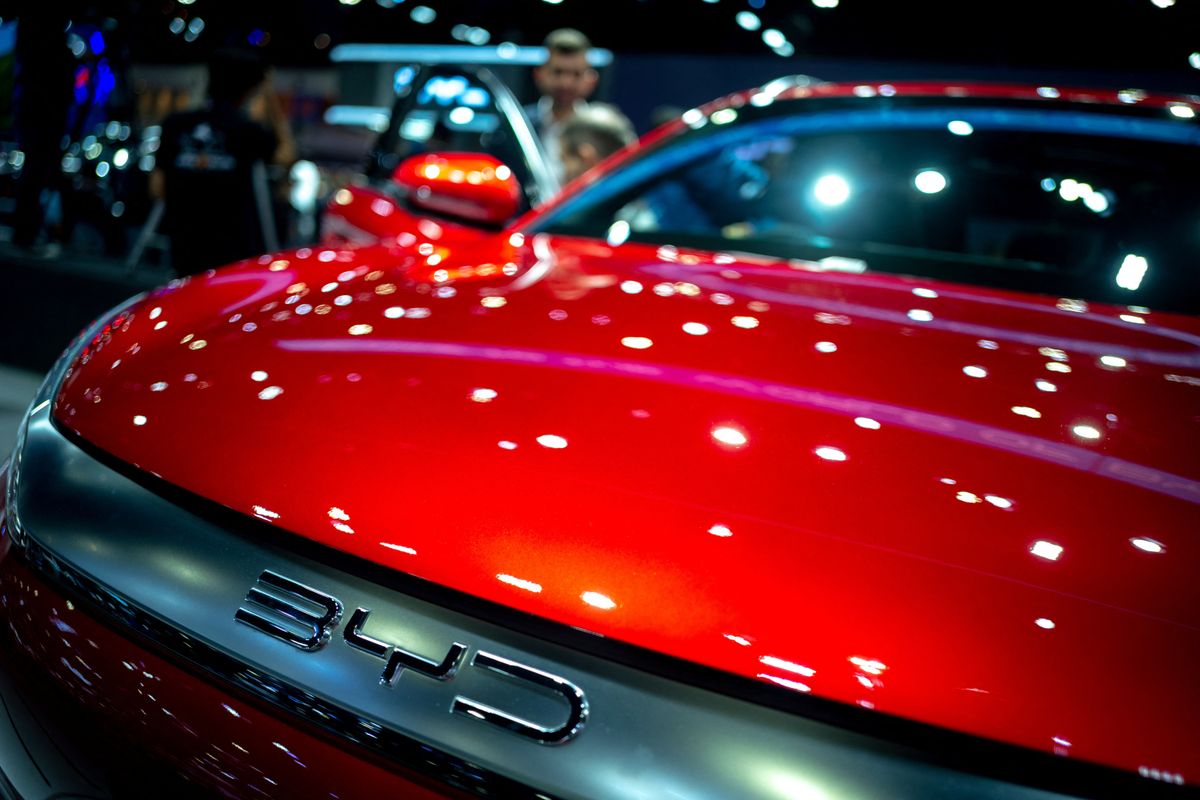China’s carmakers BYD and SAIC are avoiding the supply chain crisis by ordering their own ships
China's biggest carmakers, BYD and SAIC, are ordering their own ships to make sure the cars arrive on time to buyers.

A few minutes every morning is all you need.
Stay up to date on the world's Headlines and Human Stories. It's fun, it's factual, it's fluff-free.
China's long battle with COVID and its recent lockdowns have triggered labor shortages in the world's largest manufacturing hub alongside a fiasco in supply chains between Asia, the US and Europe. But, despite falling consumer demand for Chinese goods, Europe has become a major market for China's auto exports. The country has sent almost 2.6 million vehicles abroad, with over 852,000 EVs, in the first three quarters of the year, overtaking Germany as the world's second-largest auto exporter.
But, customers could actually see a supply shortage from China because its industry is already struggling with a lack of semiconductors and ships. Plus, the shipping cost flared up to the highest since at least 2000 – about US$100,000 a day.
So, now China's biggest carmakers, BYD and SAIC, are ordering their own ships to make sure the cars arrive on time to buyers. In October, the world's largest EV maker, BYD, ordered at least six ships able to carry 7,700 cars for around 5 billion yuan (US$710 million). As for the Chinese state-owned SAIC Motor, it bid on seven new carriers that can each hold 8,900 vehicles. SAIC and BYD's representatives declined to comment on the matter.
Key comments:
"There weren't enough boats, there weren't enough trains, there weren't enough car carriers to actually support the wave," said Tesla CEO Elon Musk during the company's third-quarter earnings call. "Whether we like it or not, we actually have to smooth out the delivery of cars intra-quarter, because there just aren't enough transportation objects to move them around."
"Car shipping costs are set to come down as the risks shift from backlogs to a glut in the car market," said Craig Fuller, founder and CEO of supply chain market intelligence provider FreightWaves. "The risk is more on the demand side of the equation."
"The weak export growth likely reflects both poor external demand as well as the supply disruptions due to COVID outbreaks," said Zhang Zhiwei, president and chief economist of Pinpoint Asset Management, last month. "I expect export growth to remain weak in the next few months as the global economy slows."
"Some companies may have already tried to ship their orders somewhere else or they canceled them," said Stephanie Loomis, vice president of international procurement at freight forwarder CargoTrans, in April. "But my guess is we're going to see an enormous backlog of freight come out of there like a buckshot."




Comments ()